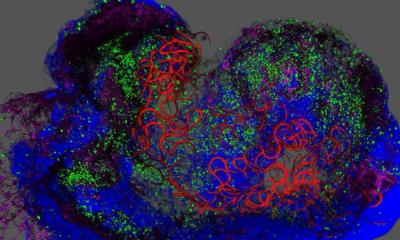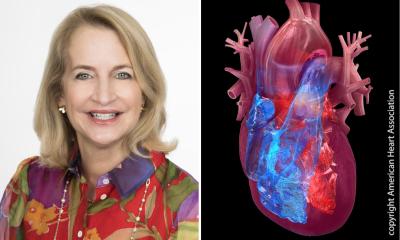Young diabetics use mobiles for self-management
A telemedicine programme, run through Leicester University Hospitals since last November, allows parents and young patients with Type 1 diabetes to use their mobile phone to record blood sugar levels.
These levels can be monitored by the patient to aid self management, as well as clinicians, via a secure website to allow them to intervene if required. Paediatric consultant James Greening explained that, under the telemedicine initiative, patients take their own blood sugar readings and upload that onto their mobile phone. ‘The mobile telephone will give them an immediate response on whether their blood sugar measurement is correct or not. It also sends that information using SMS texting to a central server. The server builds up a database of that individual patient and they can log in and look at that data via a website. The server is monitored by medical staff and any abnormalities are picked up and from that we can contact the patient by text and give them advice how to respond. Adolescents are a difficult group to interact with but they all have and use mobile phones and so far the response has been positive,’ Dr Greening added.
A diabetic nurse – funded by Medical Disease Management, which has provided the technology for the programme – reviews the data and staff are regularly being alerted to blood sugar abnormalities and sending an SMS message advising the young patient on a course of action, Dr Greening added.
The telemedicine initiative enables clinicians to build up data about individual patient’s diabetes and help tailor treatment to improve their condition. ‘It also helps the patient make informed decisions for themselves about how they should change their treatment.’
The project began with 20 patients, now has 65, and aims to reach 100 as the two-year initiative progresses. With a focus on young diabetics, because they can have difficulties in controlling their condition, the majority of recruits are 11-16 years old and all members of the clinic at Leicester Royal Infirmary, though there are younger participants including a two-year-old child. ‘For the very young ones in particular, parents find it useful to be able to monitor their sugar readings when they are at nursery or on a school trip,’ said Dr Greening. ‘The patients and their families also find it useful to have the added ability to collate data and trends in their blood sugar level so they have better information about how to change their doses of insulin.’
Dr Greening said while the response from the young patients had been positive, he did not want to pre-empt the longer term benefits until all the data from the service had been analysed at the end of the initiative. However, he said: ‘From the medical side, we have seen benefits in clinical practice in being able to remotely monitor the blood sugar readings.’
The success of the programme is being evaluated and could be used for adults and other chronic conditions, such as asthma, blood pressure and COPD.
Report: Mark Nicholls
01.07.2009





